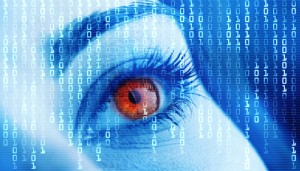 This can’t be stated often or emphatically enough. If you are willing to dismiss, suppress, or reject evidence because it conflicts with what you want to (or have been told you should) believe, then you are acting irrationally—by definition. And your judgement should be discounted accordingly.
This can’t be stated often or emphatically enough. If you are willing to dismiss, suppress, or reject evidence because it conflicts with what you want to (or have been told you should) believe, then you are acting irrationally—by definition. And your judgement should be discounted accordingly.
While this situation usually comes up with regard to a specific topic, it reflects a larger problem with mindset. Sen. Marco Rubio demonstrated this most recently when, in an interview with GQ magazine, he was asked how old the earth is. After declaring “I’m not a scientist, man,” Rubio danced with all his might, ending with the declaration that “it’s one of the great mysteries.” (No Marco, it’s really not.) Rubio is previously on record as stating the “crux” of the disagreement is “whether what a parent teaches their children at home should be mocked and derided and undone at the public school level.”
It’s easy to dismiss this as being isolated to the topic of geology or evolution, something that doesn’t impact the lives of the vast majority of citizens. Rubio asserts as much when defending his GQ statement. He said this didn’t matter, pronouncing it “a dispute amongst theologians” that has “has nothing to do with the gross domestic product or economic growth of the United States.”
Yet, as I’ve argued in this space before, and as Paul Krugman points out in his recent column, it matters greatly. It matters because we are hindering a crop of potential petrogeologists who are limited to guessing where God hid the oil. But moreover, it matters because we are teaching kids that evidence can be ignored if it’s uncomfortable. And it is this mindset which is particularly damaging, and not just to the field of science, and as Rubio has demonstrated, not just to kids.
We have adults rejecting global warming and progressive tax codes, not because of evidence, but because of ideology. We saw dismissal and rejection of pre-election poll data, not because it was inaccurate, but because it supported the wrong conclusion.
We live in an increasingly technological world with a complex multinational economy. Our success as a society, a country, and a culture depends on our ability to carefully and rationally understand and control that abstruse system. Reliance on irrational explanations and positions in the face of evidence backed models of the world is simply dangerous.
That is not to say that faith and ideology have no place in society. They add value to the lives of many. All the world is not explainable using logic and reason. Faith and ideology help most fill the gaps. But where data and dogma collide… bet on data every time. All our futures depend on it.
